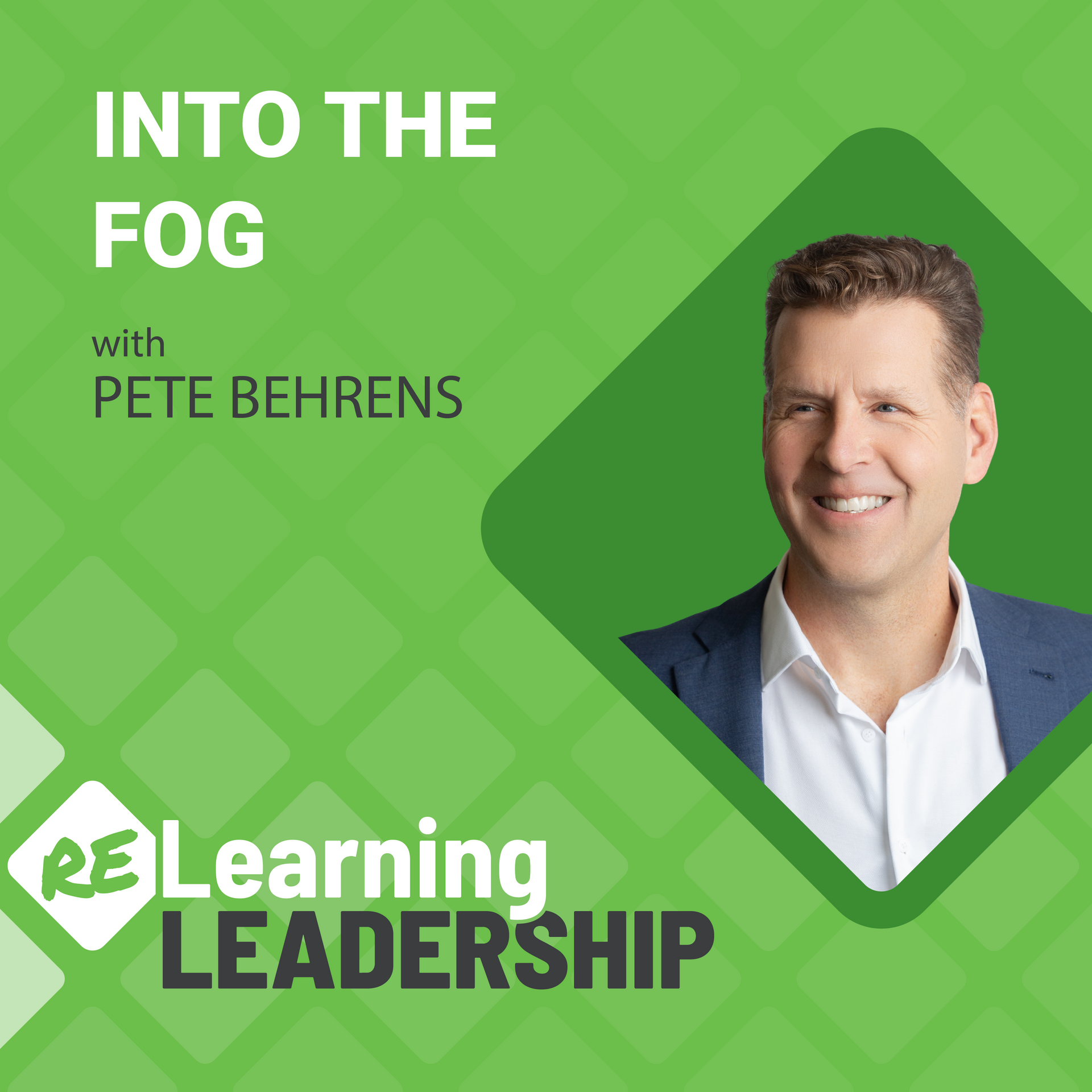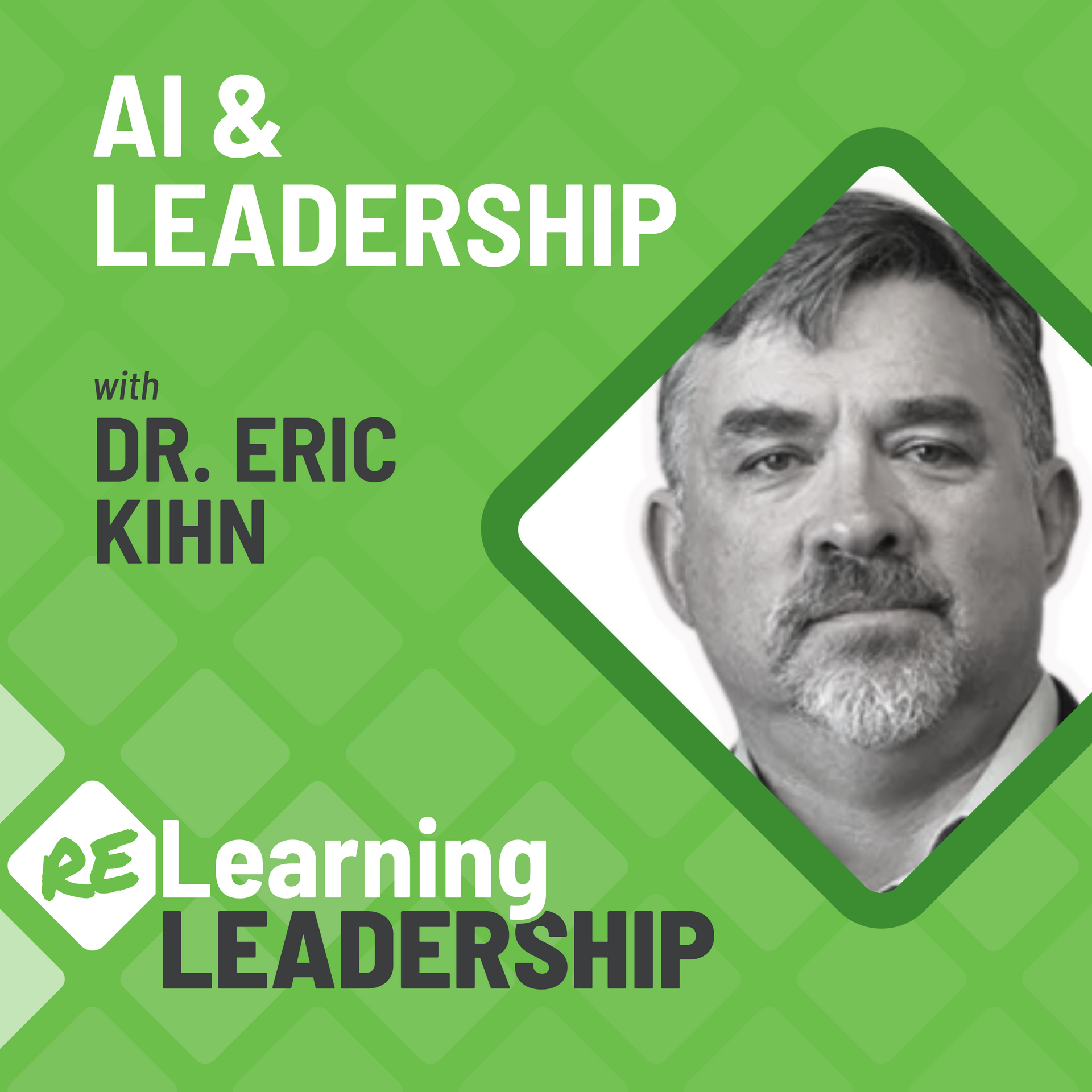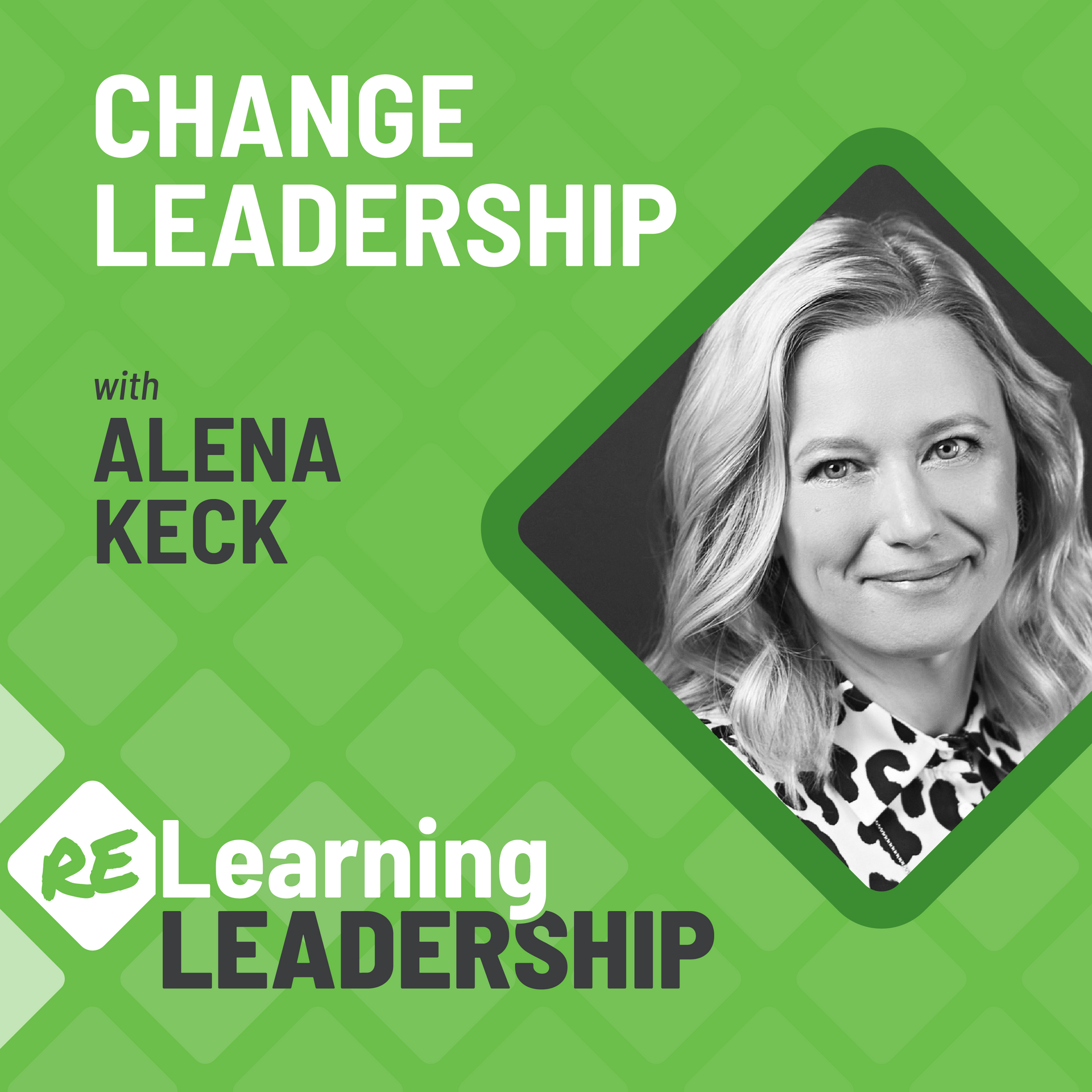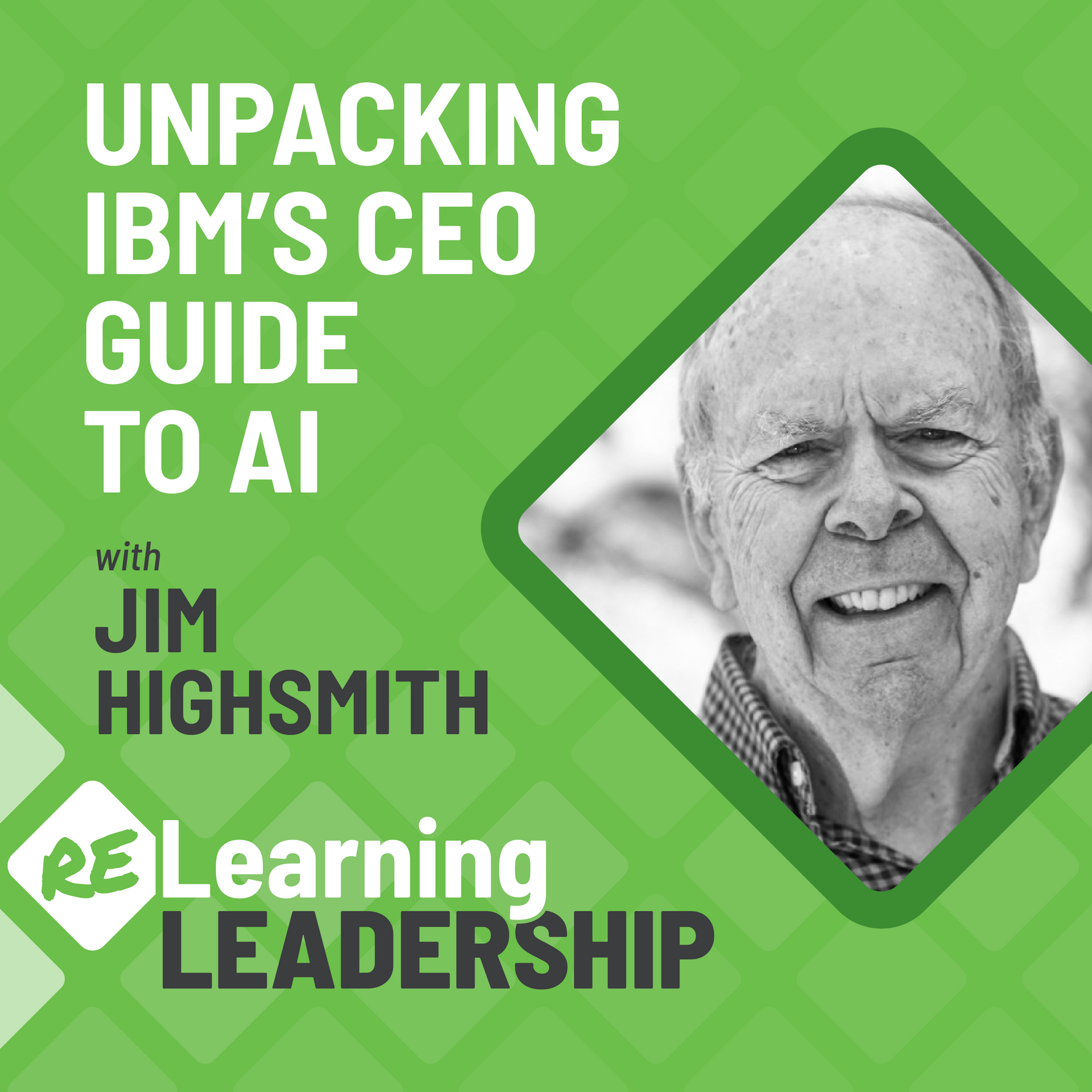5: Rebuild Your Leadership Habits
How does intention subvert accidental leadership?
Crystal Mills, a Regional Vice President for a Canadian credit union, shares her rollercoaster story exploring the highs and lows in rebuilding her new leadership habits amid overwhelming stress and anxiety.
Both Crystal’s story, and our discussion following, is with Jasmine Kernaleguen, a leadership disruptor who inspired Crystal’s new leadership path and engaged Crystal on her journey.
Crystal Mills, Regional Vice President
Crystal Mills is a Regional Vice President of Retail Banking, for Regina area in Canada, with Conexus Credit Union.
She is responsible for the recruitment, development, and empowerment of strategic and operational leaders within retail banking, and the member contact centre. Crystal believes in leading with authenticity and intention as it creates an environment for thinking through coaching and development of others and self.
In addition to leading a large team, Crystal spends time volunteering for organizations in and around her community. In 2014, Crystal was the keynote speaker for the Kidney Foundation of Saskatchewan gala and very recently accepted a Board of Directors position with the SOFIA House, second-stage housing for women and children fleeing domestic violence. With over 20 years in the financial services industry Crystal has been a two time recipient of the National Award of Excellence and The Be Authentic Award through Conexus Credit Union. Crystal holds many designations, including her Executive Master of Business Administration Degree.
Crystal is a proud wife and mother to her husband Todd of 17 years and daughter Eve. In her spare time she enjoys being outside walking their beloved dog Piper and above all they are a family who loves to travel abroad whenever they can.
Connect with Crystal
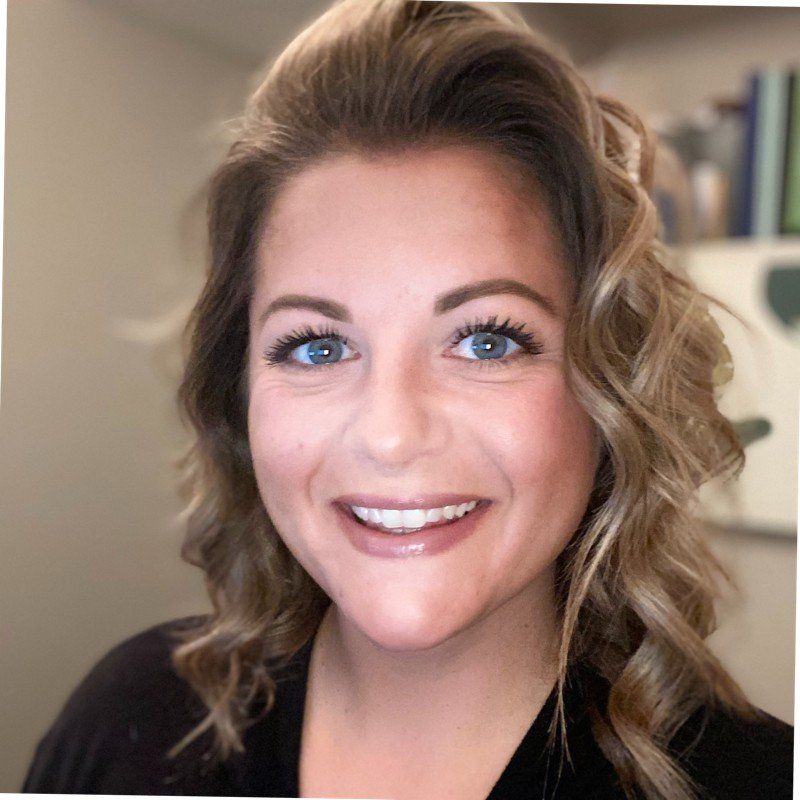
Jasmine Kernelaguen, Adaptive Leader, Connector, CEO
Disrupting and expanding thinking, and helping leaders redirect their default actions, Jasmine creates impact by helping people bring their possibilities into the present, blasting past their own expectations. She is gifted in creating clarity and helping high performing entrepreneurs & leaders win, as she partners with them at the intersection of leadership, neuroscience, physiology and lasting behavioral change.
As a Leader & Brain-Based Certified Coach, Jasmine coaches high performing leaders and entrepreneurs primarily in tech, engineering, and scientific fields to achieve formidable impact and results.
Jasmine is a former senior leader and board director who currently serves as an Executive Board Member and Head of Leadership Development for the Boston University Agile Innovation Lab. In transforming her own leadership and helping others do the same, she has found tremendous shifts in team engagement, business agility, delivery and overall results far exceeding expectations. Her own leadership journey led her to become an Agile Leadership Educator and Certified Leadership Agility 360 Coach to help other leaders learn and practice this too, globally and at home in Canada.
She is recognized as an engaging Speaker and Facilitator, highly pragmatic, supportive and challenging, with the ability to connect context, clarity and momentum forward, with leaders and teams.
[Jasmine is a nerd, and a nerd whisperer… She also has a fascination with paradoxical thinking.]
Connect with Jasmine
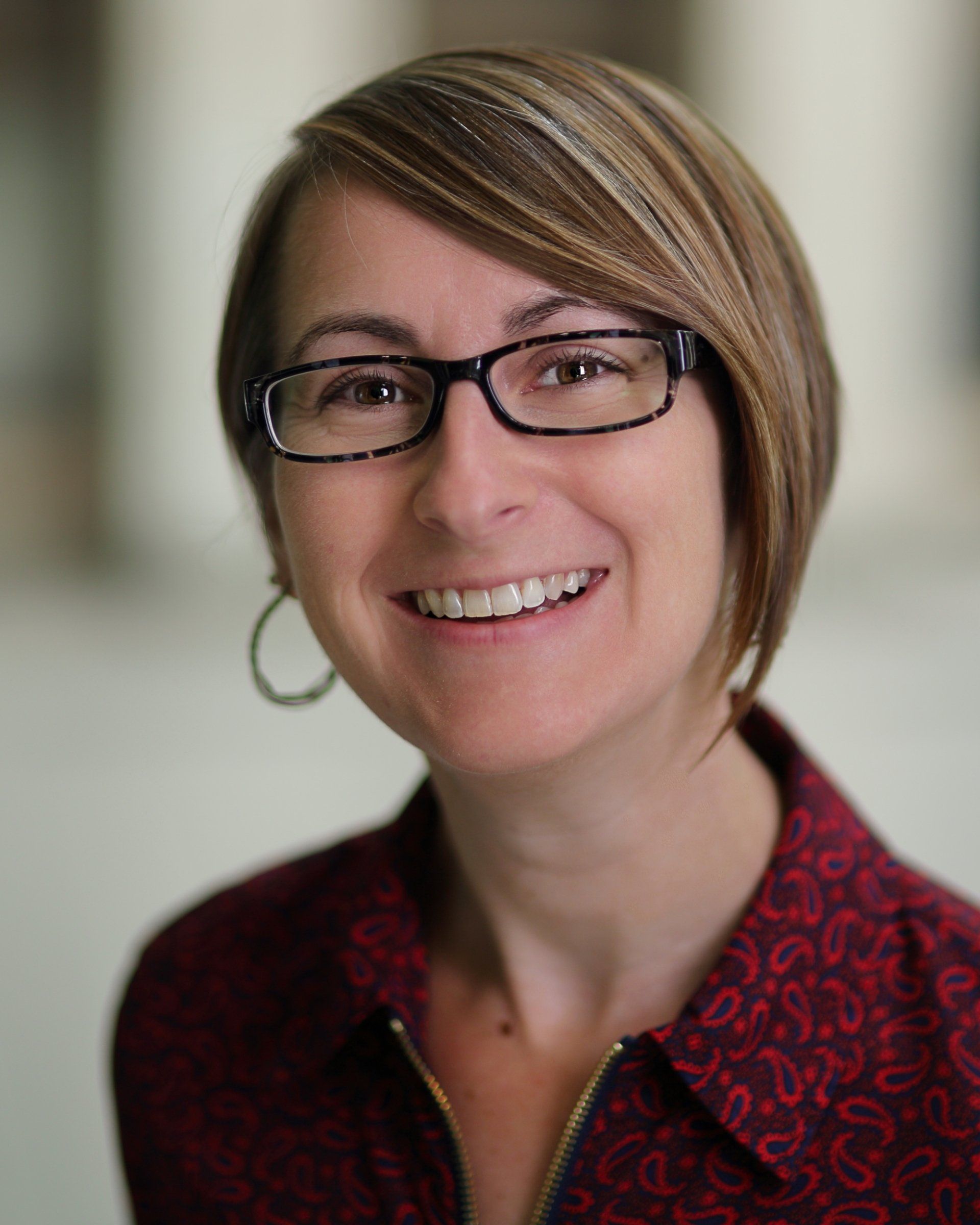
Relearning from Crystal's leadership story…
Hack into yourself. Awaken your inner awareness. If we're not aware of our own thinking and behaviors and how those show up habitually in everyday interactions, we're relegated to accidental leadership. Our leadership will run on autopilot. Start to reflect on how you are showing up, what you focus on, what you think about, how you are feeling, and the behaviors you exhibit. Journal these items and begin to identify patterns that are working for you and patterns that are not working for you.
Create explicit intention. Old habits will not be broken and new habits will not form without clear intent to do so. From your list above, identify ONE thing to work on. We recommend ONE because that is hard enough! Avoid telling yourself to “STOP” doing something. Rather, find a replacement habit to insert into your routine. Use “IF-THEN” language in your preparation. “IF” this happens, “THEN” I want to do this. This preparation will alert your brain to look for the signal and more likely to see it in real time.
Practice deliberately. New habits take time to build. Through deliberate practice you create three opportunities to learn and grow - BEFORE you engage think through your intent, DURING an engagement attempt to apply your new habit, and AFTER an engagement reflect and journal on your experience. This is called an agile Sprint Cycle: Plan, Do, Reflect.
Celebrate awareness over competency. Becoming “good” at something takes time. None of us are “good” from the beginning. In fact, it will feel uncomfortable, unnatural, and inauthentic. That is true with anything we try for the first time. Think of this like middle-school relationships - they are awkward and we stumble often. However, it is required we get through this stage. So, during this early stage celebrate your awareness, even if you remember too late! You remembered! You became aware! That’s a win! It will improve next time!
Get back up. You will stumble and fall. Stress and pressure will set you back. You will forget. Great athletes don’t win every event, they have strength of resolve to rebuild from loss and setback. Great leaders are not always great, they are always working toward greatness.
Episode Transcript
Pete Behrens:
What does it take to break old habits, and build new, more effective ones? Welcome to another episode of Relearning Leadership. Where we explore a specific leadership challenge and break it down to help improve your leadership, your organization, and even your personal life. Today, we have a rollercoaster story from Crystal Mills, a regional vice-president for a Canadian credit union. Like many she attended an inspirational leadership course and was on the path to building more effective leadership behaviors until bam! The stress of COVID brought back her dark side.
Crystal Mills:
How am I going to unwind four months of myself to go where it was at the start of COVID? To the leader I needed to be for my team?
Pete Behrens:
Crystal's interview, and my discussion following is with Jasmine Kernelaguen, leadership coach engaged with Crystal throughout her habit journey. Following, I joined Jasmine to discuss the power and the pitfalls of habit, and how as leaders to build new, more effective ones. I'm your host, Pete Behrens founder of the Agile Leadership Journey and 30 year veteran in corporate leadership, both as a leader myself and in guiding other leaders. Thanks for joining our journey of relearning leadership. Let's dive in with Jasmine and Crystal.
Jasmine Kernaleguen:
Hey Crystal, how's it going?
Crystal Mills:
Hey, Jaz. I've been doing well. How are you?
Jasmine Kernaleguen:
I'm very well, thank you. I just wanted to just say welcome.
Crystal Mills:
Thank you. You might not be thinking me by the end. It's my first podcast. I'm not totally sure what you can expect or anybody else listening. So best of luck to you as we move forward today.
Jasmine Kernaleguen:
Oh, come on. It's going to be awesome! So the first thing I wanted to ask you about was let's hear about a simple change that you made coming out of our education session.
Crystal Mills:
Everything. I think that was one of the big things coming out of the session and the course was, you could take everything, but it has to be in the bite-sized pieces-
Jasmine Kernaleguen:
Right.
Crystal Mills:
... and we're I really wanting to focus. I think there was components that I had, maybe I wasn't calling it what it was at some point. But really what I took away was to be very intentional with my learnings. I wanted to share the insights with my team and my peers and those that didn't have the opportunity to attend or go through the session at the same time I did. But also about the shifting of mindset. So where did that take me? What does that mean? What do I need from them?
Jasmine Kernaleguen:
Excellent. So it sounds like a real focus on being intentional about seeking feedback and using it from your team. So you're practicing that coming out of our learning session. How did that go? How did they respond to that?
Crystal Mills:
Completely confused.
Jasmine Kernaleguen:
Okay!
Crystal Mills:
Well, I think it was one of those sessions Jaz or one of those courses that I've taken that just really, really resonated. I think there were components of, "Yeah, I do that quite often or frequently. Oh God! Yeah, totally, I apply expert leadership at times, and that sings to me over here. Yes, I do think that I have catalysts behaviors." So when I went to my team and I said, "Well, here's all the wonderful things I've learned. Here's what I need your help with." They all looked at me and said, "Okay, you're crazy but sure we'll jump on board with you." The more that I started to do these things the more I had comments for my team come back saying, "You know what? You've changed. There's some things that you're doing totally different than what you've done in the past or that you've done before." So the change has started to take hold, not super different from how I led before, but I would definitely say more cohesive.
Jasmine Kernaleguen:
Yeah, that's quite typical. Can you share with us what habit you were trying to form?
Crystal Mills:
I really wanted to create the environment for thinking. As we talked about heroic leadership, and we talked about those things is, "I don't want to be that for them. And for myself, I don't want to be that." So I am leading with intent. I'm trying to create this environment for thinking with my team, and creating that real independence is "If you were to make that decision with me standing behind you or the CEO of the company standing behind you, what's the decision you would make? How do you think through it?" There's more options to go through than just kind of the straight linear path.
That's where I'd say we're really starting to have better and deeper conversations as a team, is I do well coaching. I love coaching. It's one of my favorite things. I do take pride in my coaching abilities. Now how do I take those coaching abilities and practices, not during every conversation but also lead with intent. And bring those questions to the table. Without just circling questions but coming with some type of outcome or at least some small experiment. Or some type of controlled environment of what we want to try. That for me is really big, is "Be brave, be bold. And go ahead and celebrate your failures. What did you learn?"
Jasmine Kernaleguen:
That's great. So really helping them find their way and think and giving them the intention behind your thinking, behind what you're doing. Those were kind of the habits that you're trying to build around with your team. Now, talk to me about... I know we had a conversation post the first COVID lockdown. You felt that COVID had derailed you. Can you talk to the audience a little bit about that? What happened?
Crystal Mills:
Some really proud moments and not some proud moments, I guess you could say during COVID. If nothing else there was really a lot of good things that came out of it for learnings, for me as an individual. For learnings for me as a leader. I would say with the derailment happened is I felt like I had really caught on and was really working diligently on building this legacy with my team and, a tidal wave and this unstoppable ship and COVID hit. I think we all know the stories of how quickly the decisions were being made in any organization.
Or just even looking at our country how quickly things changed and decisions were made,, and the confusion behind them. So you're working in this chaotic environment and then add on those higher levels of stress, because it actually had to do with people's safety and health. At some point it was just know there calls for a different style of leadership here and it really, really moved into, it wasn't even an expert or achiever. It was really authoritative and directional. That was the default behavior of "Don't do as I do, just do what I say and don't ask questions."
Jasmine Kernaleguen:
Right.
Crystal Mills:
I started thinking about things and as I reflected on my own mid-year review with my leader, it was really, really evident. Our teams started to get into the robot state of not asking questions and just forging ahead. For me, it was like, Oh my God, what are we doing? How am I going to unwind four months of myself to go where it was at the start of COVID, to the leader I needed to be for my team? I had to push the pause button. I probably could have done that earlier and I didn't and that's really big self-reflection in hindsight for me.
Jasmine Kernaleguen:
Excellent. That's such a great learning right? Becoming aware that you have to hit the reset button. When is that? What does that look like? How do I realize that I have to hit the reset button? So important, so thanks for sharing that. Now tell me this is a hard question but I would love to dive into it with you. What is one thing that you learned or you relearned about yourself?
Crystal Mills:
The one thing I did learn about me though, is my defensive mechanisms definitely went up. When I think of all those cognitive threats-
Jasmine Kernaleguen:
Right.
Crystal Mills:
... really those SCARF triggers. Really, I had answered the survey and it showed that I had like relatedness and fairness were my top two. Over time, I don't think it's either one of those. I think autonomy for me is the real trigger. The ability to be the decision maker and have the autonomy to make the decisions, and really more so control. I think control was something that really kind of caught me off guard, and I had a reaction to it. Every stress of COVID, every decision we made, everything that took place for us protecting our teams and members and whatnot. But then this one little small thing just kind of rubbed me the wrong and I had a little bit of a non-emotional... Well, it was an emotional reaction to it in that it was just a trigger for me. It's taken me probably until just recently here in my year-end review that I really came to the conclusion that it was about control.
Jasmine Kernaleguen:
Mm-hmm (affirmative). When everything feels out of control, right?
Crystal Mills:
Yes.
Jasmine Kernaleguen:
We need to create that certainty. It's interesting because so many leaders that I've worked with over the past few months have said... have had similar experiences, Crystal. They're saying, "Oh, I slipped back into my defaults. I've felt so threatened by what I was going through that I slipped all the way back. And farther even than I ever thought. Or I did things that I just would never have done." Some of it is let's face it we're in a situation we've never been in. So one thing I wonder about is what are some words of wisdom that you have for these other leaders?
Crystal Mills:
I wouldn't even call them words of wisdom. I would call them just from my experience, is you have to want to change your behavior. For me, I think that's a big thing. I think when it comes to habits... I don't think you even need to lead team. I think that what I've learned about this as well is there's a lot of self-leadership in this-
Jasmine Kernaleguen:
Yes.
Crystal Mills:
... too. If you're open to changing your ways, and your thinking, and your mindset, not everything's going to resonate 100% of the time. I mean I refer to my books, I refer to my notes. I refer to my coaching frequently and often with my team. I think that you have to start with you first and really just kind of take it from there, and be brave and courageous of where it may go.
Jasmine Kernaleguen:
Yeah. Awesome. Be intentional, leverage feedback, find a buddy, have people help you. You need the allies, right? You need that person. Who's going to tell you, "That wasn't great. Here's how you could have done that differently." Or "Here's how I saw that when you did that." Thanks so much Crystal, for our conversation, it was wonderful to catch up with you. Great to know what you're still working on, and what your team is working on as well along the way. So thanks so much for coming on today.
Crystal Mills:
Thanks Jaz. Fabulous. If I may do a shameless plug? Not because anybody's asked me to, but I know I've had really great experiences with you. Not just from the session, but then going through the Leadership Agility 360, all of those types of things. I've had really great connections with you all. Honestly, it's been over a year now since I met you, and we continue to honor our relationship. For anybody out there, I really want to give you a shout out because I love your style. I love the way that you deliver, how easy you pick on cues, and you connect it back for people. What I also love is you call people on their stuff. When you hear it, you go right in after it in the most safest confidence building way. I have taken so much out of it. So I'm glad to have been invited today to share with others. I really hope that you continue on with this... Which I think you will, and that I still have access to in the future.
Jasmine Kernaleguen:
Awesome. Well, thanks so much Crystal for that. That was so kind of you. So great to have you and let's chat soon.
Pete Behrens:
I want to welcome Jasmine Kernelaguen, who's not only a colleague and a friend she's a nerd at heart connecting leadership and science. She's discovered that we are often constrained in paradoxes and puzzles that we can solve if only we could see them. Today, she mobilizes as chief disruptor at Amp Coaching and Consulting. And head of leadership development for the Agile Innovation Lab at Boston University. She creates clarity and enables leaders and organizations to become more adaptive, and be their best. Please join me in welcoming our Canadian friend to the stage, Jasmine.
Jasmine Kernaleguen:
Thanks, Pete so much for having me.
Pete Behrens:
Great to have you here and what a beautiful tribute Crystal shared on the impact you made to her as a leader. How does that make you feel?
Jasmine Kernaleguen:
Oh, I thought that was awesome. Crystal is just such a good human being, and we've done some coaching together. We've taken their whole organization on the leadership journey and that was just fantastic to reconnect with her.
Pete Behrens:
I want to get into Crystal's story, but but maybe let's take just a step back and let's talk a little bit about habits. Why are habits something we should even care about?
Jasmine Kernaleguen:
It's so important to think about habits because your habits really create who you are. They're the foundation of your behavior. They're the things that take you to wherever you're going. I love to ask people, "How many decisions do you think you make in a day?" People might answer a couple of 100 or 700. It's usually in that type of range. When in fact as human beings, we make about 35,000 decisions a day. 35,000. Of those only, 10% or less are actually conscious decisions about what we're doing. So habits are super important because they're the 90%, right? There's the 90% of autopilot that's carrying you wherever you're going.
Pete Behrens:
So I can imagine then as leaders when I'm thinking about these habits, and I can't envision even 35,000 decisions I make a day. Obviously, many of those are probably, walking, standing, drinking my coffee. But my guess is there's a lot of those habits that really signify who I am as a leader, and how I'm showing up in meetings, and how do I engage with you? I can imagine there's probably a lot of habits in relation to others.
Jasmine Kernaleguen:
Yes, absolutely. So when you're interacting with the members of your team, for example, how are you beginning those interactions? Even your habits around how are you thinking, how are you preparing for those interactions? That determines ultimately what transpires in those conversations. How the conversation goes? What your typical response is? How you respond when they respond a certain way? All of those things really drive how you show up as a leader and how you're received.
Pete Behrens:
So it sounds like in working with Crystal, you were probably exploring a little bit of some of those, some of her habits. So as you work with someone like her, how do you start to expose or shine a light on those dark spots that we just don't see?
Jasmine Kernaleguen:
Yeah. Some of the things that Crystal did were really useful. She was really active in seeking a lot of feedback. So asking for feedback in small bites from her team so that she could understand what they were thinking, and understanding how she was actually being received. So am I being received in the way that I want in order to create the behavior or the thinking or whatever it is that I'm looking for from my team?
Pete Behrens:
I can imagine it's hard for people to ask for feedback. Is there anything leaders can do on their own?
Jasmine Kernaleguen:
Yeah, absolutely. I would always encourage people to do a combination of different things. Try different things. If you're getting feedback, get feedback from different people. But in terms of doing this yourself and initiating the process yourself, it's a little bit more tricky because of course your judgment of yourself is always quite different than the judgment of others. But what I would suggest is really considering is what I'm doing working for me? Is what I'm doing, actually creating the result that I'm looking for? If not what's my reflection on my behavior and what's it creating in these other people? Because we know that our teams will mirror us as leaders. Right? So if I'm seeing chaos, that means I'm creating chaos as well. It's hard to look in the mirror sometimes, right?
Pete Behrens:
Yes. Or yes, it's a challenge. I recall a couple of summers ago I had run 360 on myself. It was interesting, one comment still sticks out to me from one of my managing partners. That is, I had this intent in one sense of what I was doing when I was hiring somebody. He just flipped it around my me and said, "Yeah, your intent was to seek input, but you had already made up your mind." It was just like, "Bam!" It was like that that feedback was just in my face like, "Oh my gosh, I had a total blind spot in what I was thinking at that moment." And what I thought was across as curiosity and openness, and he perceived that as just, "No. It was rhetorical."
Jasmine Kernaleguen:
Yeah, exactly. Yeah, you're not alone there. That happened so many times that's happened to me as well. Right? "Oh, I thought that I was doing A, but actually it was B. Or I was just trying to get people moving well, my way on my bus, down my road." Whoops!
Pete Behrens:
All right. So, obviously we have some pitfalls of self-analysis. Maybe 360's can help, but it sounds like more informal 360's are just to kind of ask others. So in Crystal's lens here talk to us a little bit about her habit specifically, and what was it that she was trying to do here in terms of improving the dynamics with her team?
Jasmine Kernaleguen:
So in her case, one thing that she did really well, which a lot of leaders take a little bit of a wrong turn in habits is sometimes people will focus on what they don't want. So, "I want to not speak as much in meetings, or I want to stop doing this or that." In fact, oftentimes you get the opposite result because you're actually connecting more and more to that behavior you want to stop. So one thing she did really well was focused on the behavior she wanted to do which was more feedback, focus on outcomes, get the team more involved, get them talking more. So that's really what she focused on was, "Instead of me jumping in, I will wait until a few people have gone, or wait for the team to speak. Or ask them a question rather than making a statement."
Pete Behrens:
That's interesting. So, the concept of focusing on a stopping creates more focus on the thing you're trying to stop. Which makes it harder to stop in a sense or a more difficult. Maybe that's why a lot of people really appreciate when I tell one of my stories. Which is in meetings I have a tendency to talk too much. So one of my practices was to, instead of talking to write down. I guess that follows in your realm of replace a habit, don't try to stop a habit. People often provide feedback that, that's very helpful.
Jasmine Kernaleguen:
Yeah, exactly. It's such a useful technique. When you try to stop something, you kind of give it a dead end. So you actually just kind of bounce off the wall. You're trying to stop something, it doesn't know what to do next. Instead of that, if you can think about something that you want to replace with something else, then you give yourself somewhere to go. So instead of bouncing off that wall, you can just take a left turn and try something else. The key is to go small, super, super small when you're trying out those new things.
Pete Behrens:
Yeah. Can you give us maybe an example of, of what would a real small step? Or something maybe that Crystal was doing that was a real small step that helped her?
Jasmine Kernaleguen:
Asking for feedback is an easy example. So instead of asking for all the feedback, asking for one thing. Or going to one person and asking for one thing, rather than serving your entire team. Or serving your team on all the meetings. What's one meeting that you have that if you improved it, it would really make a change? What's one thing in that one meeting that you could do? Another example that I love to use is a coaching client that I had she was having trouble sleeping, and we know that sleep is super important. She decided to try different things as a wind down routine. One of the things that she tried was journaling. At first she went into this thinking, "Yeah, journaling's kind of dumb. That's not really me, but I'll try it out." So she was going to initially try it out for a long period of time like, "20 minutes I'll journal." Too big. Way too big.
What's half of that? 10 minutes? Still too big. So what we started out was two minutes. So she would lay out her clothes, make her lunch, grab a cup of tea, sit down in the living room and journal for two minutes with a timer. That grew and grew, and grew, and grew, and grew. About six weeks later were having a coaching conversation and she's telling me, "Yeah, so here's what I'm doing with this. I guess I'm a writer now." And she just keeps talking. I'm like, "You are a writer, what happened?" So she just built this tiny habit over time and she shifted herself without even realizing it, until she said that out loud and I give it back to her.
Pete Behrens:
Thanks for sharing that. Yeah, I think people hesitate on change because it feels big. What you're saying is we can break it down, not necessarily a small behavior but maybe even just a small focal lens of what you're going to journal on. Just journal on a single meeting, or journal on a single behavior. So, it sounds like your story got into COVID a bit with Crystal. COVID, obviously has been a huge shakeup to most of us. It sounds like in her world, it shook her habits or at least her newly forming habits back to some old ways. Can you describe what's going on there and how people might be able to relate to that?
Jasmine Kernaleguen:
Yeah, for sure. This is a good example of what stress does to you. So she's forming new habits. There used to be an old rule 21 days to form a new habit. We know that that varies depending on the habit that you're trying to form. It could be just a few times and it sticks, or it could be a few hundred times and it sticks. Depends on the complexity. So in her case, she's trying to form these new habits they're pretty complex. They're changing her own behavior in her interactions with her team, which is great. Then she has this huge stress, which is COVID. Like any of us under stress, you typically go back to your defaults. So you're trying to control the things that are out of control and you go back to your defaults. Sometimes we actually slip even farther back than our initial default stance. So your brain is in threat mode, you're trying to survive, and you go all the way back to the start.
Pete Behrens:
Yeah. Yeah. So do we recognize it? Are we able to know we're going back? Then number two, what can we do about it? So what are maybe things leaders can think about if they're feeling that stress? Or how can they connect to that knowing that this might be happening?
Jasmine Kernaleguen:
Ultimately, you have to create awareness before you can do anything about it. If you're not aware you're just in autopilot doing your thing. So awareness is critical. The question is how to create that? A leader might create that awareness by always having something that reminds them of the behavior that they want. Then being able to spot that in themselves, "Oh, I'm actually sliding back. Or, oh, I did this, and that's the opposite of what I was trying to do."
The other way to create awareness honestly, is to have your allies help you create awareness for yourself. So, having those couple of team members who are willing to step up and say, "Hey, I know that you were practicing this, but here's what actually happened to me in that meeting. I don't know if that's what you intended." It's all about creating awareness. So whether you're have a reminder that helps you do that individually, or you have other people or other cues in the environment.
Pete Behrens:
Yeah. I like the in the moment reminders. Those teammates who are willing to kind of call you out. I recall a situation I was teaching and I was using too much male language in my teaching of leadership. My partner [Jana 00:25:41] was willing to join me in classes and call me out in real time and raise her head like, "Pete. That was a he." How impactful that was, how quickly impactful that was. Now it's something that I do for others. I'm able to just kind of like, "Wait a second. That's he language" Yeah, so I can see where telling others can be such a powerful, powerful force in your own journey. So as we maybe just take a step back then and maybe using Crystal's story as kind of a lens here. Is there anything you relearned about habits, or what leaders can do about them? What jumps out to you the most, as far as the key takeaway here for Crystal?
Jasmine Kernaleguen:
I think part of maybe both of our biggest learning is how easy it is to slip back under stress. When you're really in the thick of it, things are happening that you jump right back into that default mode of operation and go. That it takes a bit to press pause, and then relearn in that moment, relearn, "Oh, Hey, I want to do something different here. What was that? Okay." Then just to remember that when you fall off just to take that first teeny tiny step to get back on. It doesn't have to be all the way back to where you were. Just what's the first tiniest, most ridiculously small step that you can think of to start back in that same direction that you were already in. So that's what she's done and she's back on the path and so is her team.
Pete Behrens:
I talk about this often, celebrate the awareness as much as the competency. If you can kind of praise yourself that you became aware whether it was in the moment, maybe soon after, that's something to kind of reward yourself with. I think if you can do that, you can kind of then start to think about what do I do, and how do I respond, and how do I improve from this? Because those awareness moments happen probably more frequently.
Jasmine Kernaleguen:
Yeah. That's exactly it. So just being thankful in the moment that that happened. Or even if it happens after, "How can I back up that awareness to become aware sooner? What are the things that I need closer to me to remind me of the behavior that I want to create?" And go from there.
Pete Behrens:
Awesome. Awesome. Great advice. Well, thank you Jasmine, for joining us today. Appreciate your contribution to our show.
Jasmine Kernaleguen:
Awesome. Thanks so much for having me.
Pete Behrens:
What did you relearn from Crystal's rollercoaster ride? For me, there were three clear takeaways. First hack in. If we're not aware of our habits, we're relegated to accidental leadership. Your leadership will be on autopilot running code from last year. Second, start small, and then go smaller. Micro-focus your habits and build from there. For me, the habit of riding my bike only requires that I put on my bike clothes and the rest will follow. Third phone a friend, enlist others to help you, call you out in real time and be truthful to you. It's too easy to look the other way, to close your eyes to lie to yourself. I'm Pete Behrens. Thank you for joining us today.
Relearning Leadership is the official podcast of the Agile Leadership Journey. It's hosted by me, Pete Behrens with analysis from our Global Guide Community. It's produced by Gabe Gerzon and David Riemer with Matter Communications. Art designed by Nicole Bedard. Music Joy Zimmerman with editing by Ryan Dugan. If you love listening to this podcast, please leave us a review. To relearn more about your own leadership visit us at agileleadershipjourney.com.
Explore:
Recent Episodes

